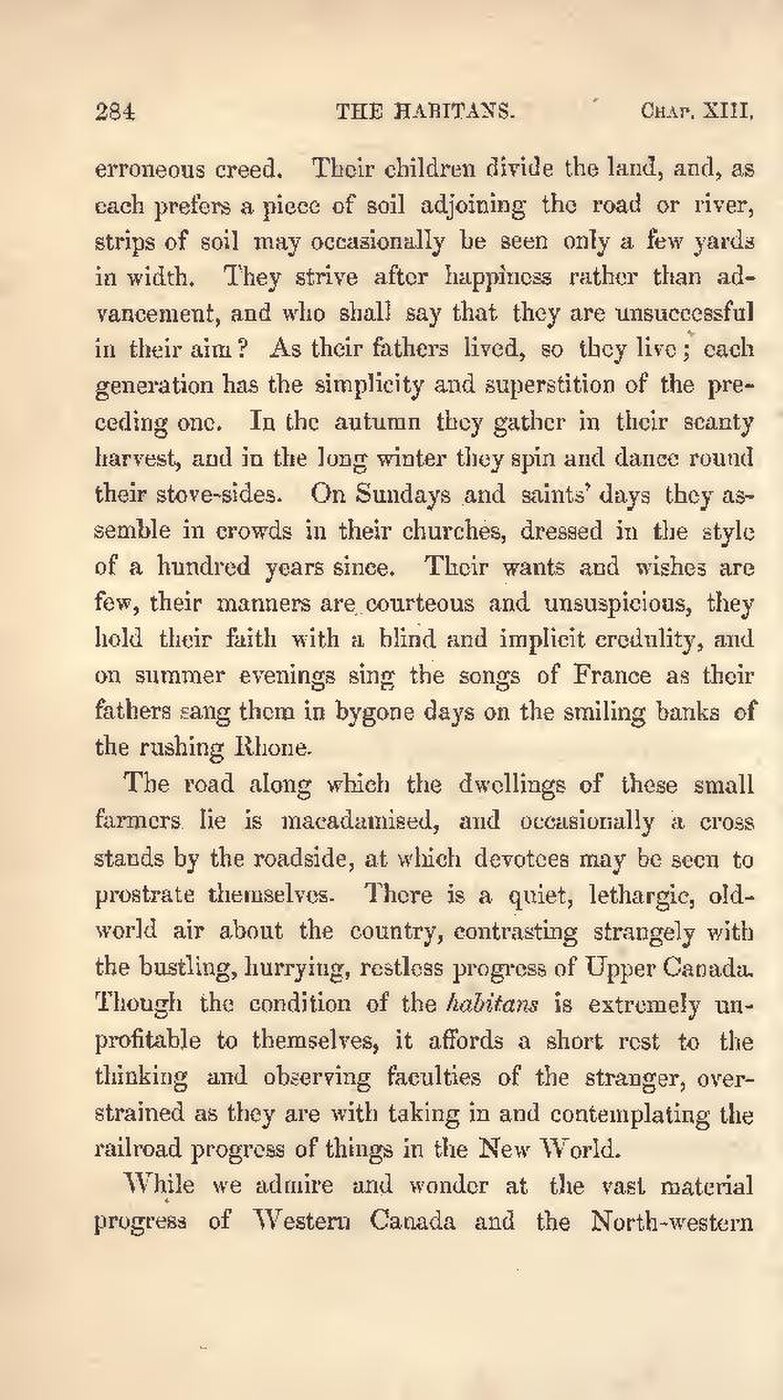erroneous creed. Their children divide the land, and, as each prefers a piece of soil adjoining the road or river, strips of soil may occasionally be seen only a few yards in width. They strive after happiness rather than advancement, and who shall say that they are unsuccessful in their aim? As their fathers lived, so they live; each generation has the simplicity and superstition of the preceding one. In the autumn they gather in their scanty harvest, and in the long winter they spin and dance round their stove-sides. On Sundays and saints' days they assemble in crowds in their churches, dressed in the style of a hundred years since. Their wants and wishes are few, their manners are courteous and unsuspicious, they hold their faith with a blind and implicit credulity, and on summer evenings sing the songs of France as their fathers sang them in bygone days on the smiling banks of the rushing Rhone.
The road along which the dwellings of these small farmers lie is macadamised, and occasionally a cross stands by the roadside, at which devotees may be seen to prostrate themselves. There is a quiet, lethargic, old-world air about the country, contrasting strangely with the bustling, hurrying, restless progress of Upper Canada. Though the condition of the habitans is extremely unprofitable to themselves, it affords a short rest to the thinking and observing faculties of the stranger, over-strained as they are with taking in and contemplating the railroad progress of things in the New World.
While we admire and wonder at the vast material progress of Western Canada and the North-western
